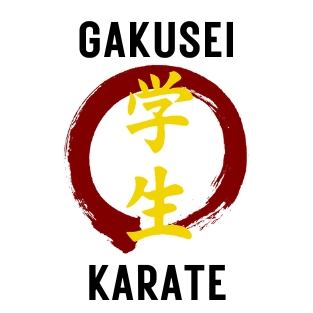The Martial Art of Karate: A Path to Holistic Health and Well-Being
In the realm of martial arts, few disciplines embody the fusion of physical prowess, mental acuity, and spiritual harmony quite like karate. Originating in the Ryukyu Kingdom (modern-day Okinawa, Japan), karate has evolved from a system of self-defence into a holistic practice that nurtures the body, mind, and spirit. Beyond its martial applications, karate offers a pathway to achieving overall health and well-being.
The Physical Benefits of Karate
At its core, karate is a physical discipline that demands strength, flexibility, agility, and coordination. Through rigorous training, practitioners develop a lean and toned physique, enhanced cardiovascular fitness, and improved muscular endurance. The dynamic movements and techniques of karate engage multiple muscle groups, promoting full-body conditioning and functional strength.
Furthermore, the repetitive nature of kata (forms) and kihon (basic techniques) cultivates muscle memory and motor skills, leading to increased reflexes and reaction times. This not only enhances one’s ability to execute techniques effectively but also contributes to better balance and proprioception, reducing the risk of falls and injuries in daily life.
Mental Well-Being and Karate
Beyond the physical realm, karate is a discipline that nurtures mental fortitude, discipline, and focus. The practice of kata requires concentration and mindfulness, as practitioners strive to synchronize breath with movement and execute techniques with precision and intention. This meditative aspect of karate promotes stress relief, mental clarity, and emotional resilience.
Moreover, karate instils invaluable life skills such as patience, perseverance, and self-discipline. Through the process of setting and achieving goals, whether mastering a new technique or advancing through belt ranks, practitioners develop a growth mindset and a sense of accomplishment. These attributes transcend the dojo (training hall) and empower individuals to overcome challenges and thrive in all aspects of life.
Karate as a Spiritual Journey
In traditional Japanese culture, martial arts are often viewed as a spiritual path, a means of self-discovery, and personal development. Karate embodies this philosophy, emphasizing the cultivation of character and the pursuit of harmony (wa) in all endeavors. Central to this ethos is the concept of budo, the martial way, which encompasses not only physical techniques but also ethical principles and moral values.
Through dedicated practice and adherence to the dojo kun (training hall precepts), karateka (karate practitioners) strive to cultivate virtues such as humility, integrity, and respect for others. The dojo serves as a sacred space for self-reflection, introspection, and camaraderie, fostering a sense of community and belonging among its members.
Integrating Karate into a Healthy Lifestyle
To fully reap the benefits of karate for health and well-being, it is essential to adopt a holistic approach that encompasses not only physical training but also proper nutrition, rest, and recovery. Balancing intense training sessions with adequate rest periods allows the body to recover and adapt, preventing overuse injuries and promoting long-term health.
Furthermore, maintaining a balanced diet rich in lean proteins, complex carbohydrates, and essential nutrients fuels the body for optimal performance and supports muscle recovery and repair. Hydration is also key, as adequate fluid intake is essential for regulating body temperature, lubricating joints, and transporting nutrients and oxygen to cells.
In conclusion, karate is not merely a martial art but a journey of self-discovery, personal growth, and holistic well-being. By embracing its physical, mental, and spiritual dimensions, practitioners can cultivate a harmonious balance of body, mind, and spirit, enhancing their quality of life and enriching their overall health and well-being. Whether young or old, beginner or black belt, the path of karate offers endless opportunities for growth, transformation, and fulfilment.



